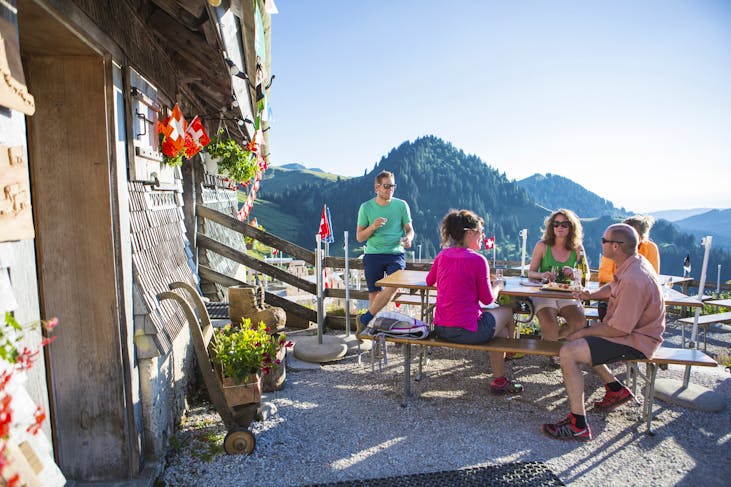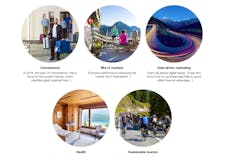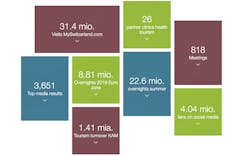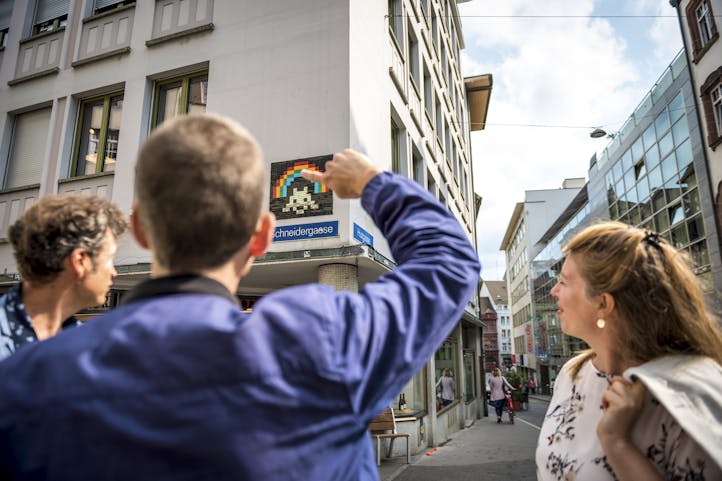Find out more about:
The three most important international markets for Switzerland are Germany (3,925,653 ON), the North America (2,749,565 ON) and Greater China (1,845,744 ON). Domestic guests make up by far the biggest visitor group (17,922,428 ON) – measured in terms of hotel overnight stays.
The Swiss Economic Institute at ETH Zurich (KOF) assumes in its forecast from October 2019 that for the years 2019 to 2021 “weaker economic performance will have a dampening effect on international demand. This is especially the case in long-haul markets…” According to KOF, the recovery in overnight stays by visitors from the euro area will be sustained, “assuming there is no further appreciation of the Swiss franc against the euro”.
In 2019, GDP in China grew by 6.14%, in the US by 2.35% and in Germany by 0.5% (Source: Statista.com).
Investment focus on Europe
This economic performance shows just how up to date the market strategy defined by Switzerland Tourism ST actually is. As well as working the domestic market and the traditional European short-haul markets, selected long-haul markets will also be tapped. Thus, the “Win back Europe” investment programme is planned for 2020/2021: CHF 2.35 million will be invested in the programme each year. ST will provide 70% of the budget, with 20% coming from tourism partners and 10% from business partners – with the aim of attracting new guests from the key short-haul markets to travel to lesser-known mountain regions and remote side valleys. European visitors will be targeted with new forms of tourism (such as wine tourism), offers and experiences with significant emotional content.
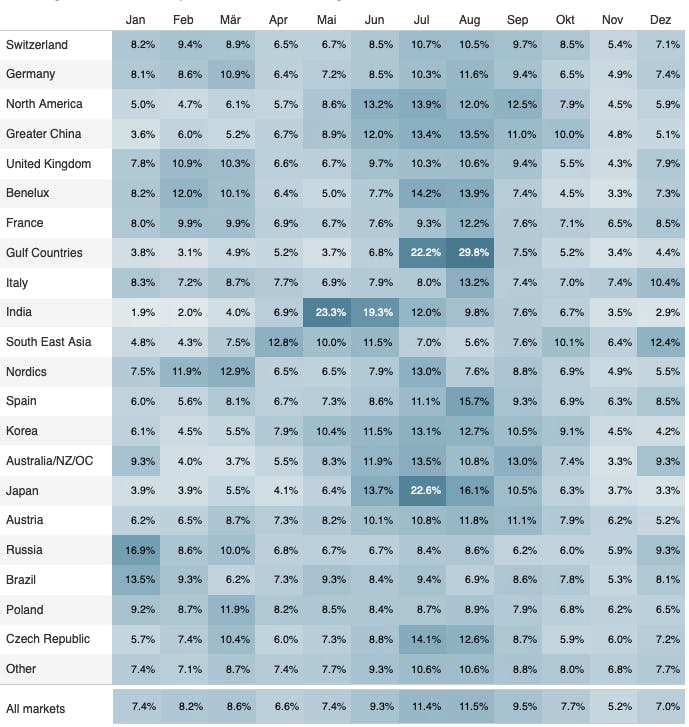
Hotel overnight stays, screenshot MIS (access for members only): The table shows which months are most popular in which markets. Example: 21.5% of all hotel overnight stays by visitors from India happen in May.
On the other hand, ST is tapping into new markets, particularly overseas. These ensure improved utilisation of capacity among tourism service suppliers. As the figures from the Federal Statistical Office show, different markets have different preferences for when they travel. For example, guests from India, Greater China and the US often travel in the low season (the table shows peaks with an over 10% share of hotel overnight stays in the relevant market measured across the entire year).
ST also focuses on individual travellers from overseas markets. After all, demographic developments in Asia have produced a tech-savvy, wealthy young middle class that no longer books trips through traditional travel agencies. These days, individual travellers increasingly use platforms such as Fliggy Shop, a subsidiary of the Alibaba Group. The Switzerland Travel Centre (STC), a subsidiary of HotellerieSuisse, ST, SBB and several Swiss regional railways, has been offering tourist products from various Swiss destinations since November 2017 – in addition to its own tours and the popular Swiss Travel Pass. The figures for rail passes issued to international visitors is a key indicator for individual tourism. In 2019, sales of rail passes rose for the third time in succession. Over 92,300 Swiss Travel Passes were purchased by individual international visitors in July 2019. This represents an increase of 9.7% compared to the previous year.


